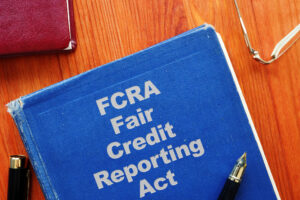
Financial Separation is Key
Getting divorced is never easy. Although it is an unfortunate fact of life for more than half of all U.S. couples, parting ways with your spouse doesn’t mean that your credit has to take a hit.
Separating financially is crucial as most married couples share joint assets, such as homes, cars, credit cards and loans. But the division of these accounts can be a messy financial predicament. It is important for you to protect your credit, and good name, as you work towards an independent life from your spouse.
Credit Impact During Divorce
 Joint accounts have joint consequences, and often with the stress of divorce one spouse may have forgotten to make a payment, or assumed the other spouse did. Missed or late payments may result in contact from debt collectors, negative credit reporting and lowered credit scores. To ensure joint accounts get paid properly and on time take these steps:
Joint accounts have joint consequences, and often with the stress of divorce one spouse may have forgotten to make a payment, or assumed the other spouse did. Missed or late payments may result in contact from debt collectors, negative credit reporting and lowered credit scores. To ensure joint accounts get paid properly and on time take these steps:
1. Calendar payments.
– Identify accounts: your name v. joint.
– Create a file for each account.
– Organize account statements.
– Calendar payment due dates.
– Review accounts for payment status.
 2. Obtain Current Credit Reports. Transunion, Experian and Equifax are the three main credit reporting agencies. Consumers are entitled to receive one free credit report from each bureau every year. Sometimes, consumers choose to enroll in a credit monitoring service which enables review of credit reports on a regular basis throughout the year.
2. Obtain Current Credit Reports. Transunion, Experian and Equifax are the three main credit reporting agencies. Consumers are entitled to receive one free credit report from each bureau every year. Sometimes, consumers choose to enroll in a credit monitoring service which enables review of credit reports on a regular basis throughout the year.
How to get credit reports. We suggest that you send a written request to each credit bureau to obtain a report. Your letter should include two forms of identification, such as a current driver’s license and utility bill. It takes about two weeks to receive your reports. While you can also obtain your reports online through www.annualcreditreport.com, this method requires you to agree to terms in a “click” agreement, which could negatively impact your consumer rights.
3. Identify your accounts
Review your reports and identify accounts in your name and those that are joint with a spouse. Evaluate your reports for errors such as:
-
-
-
-
-
- Inaccurate personal identifying information.
- Account balance or payment history errors.
- Duplicate account information.
- Personal information belonging to someone else.
- Accounts opened by someone other than yourself.
-
-
-
-
 4. If Inaccurate…Dispute! After obtaining your credit report, if there are errors, you should send a dispute letter to the credit reporting agency to request that the errors be corrected. Be sure to enclose documents that support your claim. The credit bureaus have 30 days to respond to your dispute. You may include documents such as, account statements, cancelled checks, court docket information, or collection correspondence that prove why your claim of an error is valid.
4. If Inaccurate…Dispute! After obtaining your credit report, if there are errors, you should send a dispute letter to the credit reporting agency to request that the errors be corrected. Be sure to enclose documents that support your claim. The credit bureaus have 30 days to respond to your dispute. You may include documents such as, account statements, cancelled checks, court docket information, or collection correspondence that prove why your claim of an error is valid.
 One Dispute Letter Per Error. If you find multiple errors on a credit report, dispute them individually with the bureau. Enclose a copy of the credit report with the error highlighted and your supporting documents. The credit bureaus then have 30 days to respond to your dispute letter.
One Dispute Letter Per Error. If you find multiple errors on a credit report, dispute them individually with the bureau. Enclose a copy of the credit report with the error highlighted and your supporting documents. The credit bureaus then have 30 days to respond to your dispute letter.
 The Fair Credit Reporting Act
The Fair Credit Reporting Act
The Fair Credit Reporting Act is a federal law governing how consumer credit information can be used and distributed. Consumers have the right to see what’s on their credit reports and dispute errors and inaccurate information. Errors not corrected, may violate the consumer’s rights.
Seek Legal Help
 Flitter Milz, P.C. represents people in consumer credit matters related to credit reporting accuracy and privacy, abusive debt collection contact and vehicle repossessions which stem from a pending divorce or separation. Contact Us for a no-cost consultation.
Flitter Milz, P.C. represents people in consumer credit matters related to credit reporting accuracy and privacy, abusive debt collection contact and vehicle repossessions which stem from a pending divorce or separation. Contact Us for a no-cost consultation.







